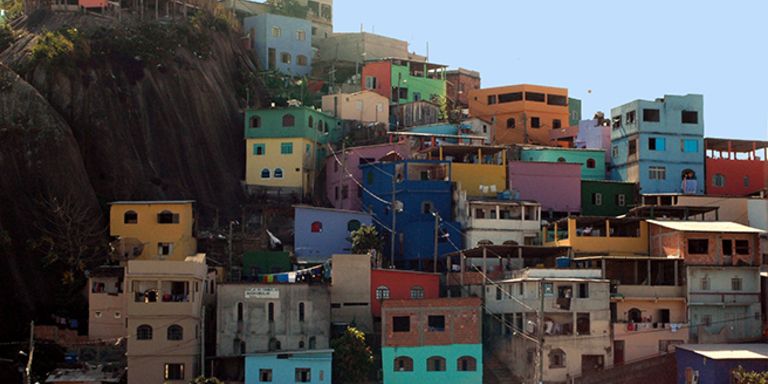
In 2019, the sixth edition of the Gobernarte contest recognized initiatives from subnational governments in the following two categories:
Category 1: Data use for the public policy cycle
Category 2: Innovative services targeted at vulnerable communities
In this edition of the contest, there were 188 initiatives from 11 countries in LAC were presented during the application period from July 1 to August 21.
The selection of the winners was conducted by an independent panel of experts according to the criteria established in the rules of the contest. The results were presented on September 16, and the four winners of this edition were announced:
Location: Mexico City, Mexico
Organizations involved: Mexico City Government (Digital Agency for Public Innovation - ADIP and Secretariat for Inclusion and Social Welfare – SIBISO)
Description of the initiative:
Mexico City wants to implement the SIBIS tool, derived from the previous platforms (SIBISO and ADIP). This system has the objective of concentrating all the information on the social welfare of the city, as well as facilitating the planning, management, implementation and delivery of social programs.
The implementation of this system will allow the effective approach of the least attended and, at the same time, the most unprotected population. Thanks to SIBIS, a single registry of beneficiaries and a single registry of social programs will also be created, which will make it possible to know and compare who are the beneficiaries of all social programs and the objectives, goals and results of all programs.
Beneficiaries: decision takers, administrators, and operators of the 144 social programs; beneficiaries of all the social programs (there are programs that serve more than 1.5 million people)
New Life to the Grotas” Program– Initiatives for evidence-based urban management
Location: State of Alagoas, Brazil
Organizations involved: Government of the State of Alagoas, United Nations Human Settlements Program (UN-Habitat), Municipal Institute of Urbanism Pereira Passos (IPP), Council of Architecture and Urbanism of Alagoas (CAU-AL) and Community Movement of Humanization of Grotas
Description of the initiative:
The "New Life to the Grotas" program is the umbrella of projects, plans and actions focused on the most vulnerable populations in Maceió, including urban and territorial interventions that seek to reduce spatial inequalities and access to services.
Within the framework of this program, the initiative presented has the objective of creating an organizational and institutional environment in which the production, systematization and use of data and information is a key element in each step of the entire public policy cycle
in the state of Alagoas. In this way, it provides an effective improvement in the quality of life and the built environment of the inhabitants of the vulnerable areas of Maceió, as well as the integration of the actors involved in the program.
Beneficiaries: 100,000 inhabitants of the Maceió caves.
Location: Río de Janeiro, Brazil
Organizations involved: Municipality of Rio de Janeiro and UN Habitat Brazil
Description of the initiative:
The program Social Territories of the city of Rio de Janeiro aims to attract to the registries and social programs the families of the city that are still invisible to the municipal network and considered poor or extremely poor. The initiative also aims to improve the quality of care and support for those who already have access to any of these services.
The initiative is planned in three phases: identification of the target audience, creation of the integrated action plan and monitoring of results. In addition, the program contributes to the achievement of the United Nations Sustainable Development Goals (SDGs), especially number 11 "Make cities and human settlements inclusive, safe, resilient and sustainable."
Beneficiaries: families distributed in ten territories of the city (90,000 people approx.)
“COME CLOSER” – CONNECTIVITY PLATFORM FOR SOCIAL INNOVATION
Location: Atlántico Department, Colombia
Organizations Involved: Government of the Atlántico Department y Antonio Nariño University
Description of the initiative:
The initiative lies in implementing a WEB platform and a crowdsourcing App called "ACÉRCATE", to bring the community closer to the local government and create a link of easy and fast access to solve problems using technology and the collective intelligence of many people to solve a problem or get public opinion regarding a topic. The department already has more than 160 free Internet Wi-Fi zones that guarantee connection to the app and the platform.
The platform will allow you to find news from the region, as well as different categories to refer to in order to submit your concerns: Electricity, Water, Infrastructure, Health, Transportation, Education; Farming; Security; and Culture, among others. These categories in turn have their group of solvers made up of government officials, members of the Antonio Nariño University, and members of the community.
Beneficiaries: 2,489,709 inhabitants of the department of Atlántico
JURADOS






